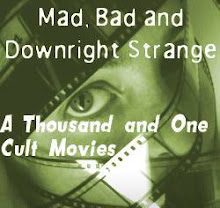
Title: Audition
Director: Takashi Miike
Released: 1999
Staring: Ryo Ishibashi, Tetsu Sawaki, Jun Kunimura, Eihi Shiina
Plot: Having lost his wife over seven years, Aoyama (Ishibashi) has spent the years since his wife’s death burying himself in his work and raising his son, who urges him to try and meet someone new. While meeting with his friend and producer Yoshikawa (Kunimura), his is presented with a plan to hold a mock Audition, as a way for Aoyama to meet a suitable new girlfriend, with the girls under the impression they are auditioning for a new film. Through these audition he meets and is immediately drawn to the soft spoken Asami (Shiina) unaware, that she hides more than a few dark secrets of her own.
Audition.1999.Trailer.DrP
Review: Okay I should start by pointing out this film should definatly be watched with only the barest information about the plot, so start reading now and go watch this film, as to read on will essentially only spoil the film…….your still here? Okay well if you havn’t seen this film, then it’s only yourself to blame for any spoilers leaked from this point onwards.
“Audition” not only was one of the films along with the likes of "Ringu" (1998) and "Battle Royale" (2000) which lead the charge for the new wave of intrest in asian cinema, which not only broke the traditional ideas of the genre, but pretty much took them outside and gave them a good kicking, while this film in perticular can also in one sense be seen as the film, which marked the beginning of Miike’s attempts to break away from the hyper violent Yakuza movies, which he had carved out a name for himself with, while with “Audition” he began to venture into a more subtle style of film making, which he has since the release of this film done several more times, though sadly these attempts have often been frowned upon by the majority of the fan base, eagerly awaiting the next Miike shock fest only to find something alittle disapointingly more subtle, which is not to say that this film is without it's share of shocks as it certainly has those, it’s just Miike is in a much more subtle mood than usual here, luring his audience into a false sense of security before revealing a truly memorable twist, in much the same way that Hitchcock did in “Psycho” (1960) which used the initial fifteen minutes to convice the audience they were watching a film about the criminal actions of Janet Leigh’s character Marion Crane, only to then revel the true darker nature of the film, somthing which Miike certainly seems to have taken his cues for with this film, dragging out the romantic melodrama of the storyline for over two thirds of the film, only to then shatter Aoyama’s (aswell as the audience) perception of Asami in a confusing fusion of flashbacks and hallucinations, as Asami’s secret is finally revealed in all it’s sustained horror, which is why I tend to recommend that first time viewers go into this film blind, especially seeing how the trailer despite containing some of the iconic imagery does tend to spoil the big revel, which tends to prove only all the more powerful when the audience hasn’t been filled in on the dark delights which Miike has kept in reserve till this final quarter which is truly classic Miike.
It almost seems like a perfect match that the film is adapted from the novel of the same name, by the badboy of Japanese fiction Ryu Murakami, who also wrote the equally fantastic “Coin Locker Babies” which is currently in production at the time of writing this review and the winner of the Yomiri Literature Prize “In The Miso Soup” and seeing how well his writing lends itself to Miike’s directing style it makes only all the more surprising that this is the only adaptation of Murakami’s books that he has worked on. Still this sole jaunt into this world is still a powerfully effective film and certainly one which it would prove more than a little difficult to adapt into an English version, not only for some of the more nauseating scenes, which would no doubt come under a much stricter censoring, even in it’s original form had Miike not been attached, who it seems has the same sort of ability to slip the more shocking images past the censor chopping block, that directors such as Quentin Tarantino have, as his name alone is enough warning for most educated viewers to know what to expect, which is no doubt why the censors are more lenient on his work. Still none of these scenes seem to be placed purely for shock factor, but instead feel like they are being shown to only further add power to the images bombarding the viewer, despite the fact that Miike had originally not wanted to take the final torture scene as far as it goes, only to be told by one of the producers to “be a man and see it through to the end.” Which ultimately turns out to be the right choice, even as shocking as it proves, it still keeps you hooked with a grim fascination, as none of these shots seems to have placed with a voyeuristic intent, even when being shown the kind of scenes which most directors would question including, in particular those involving Asami and the man she keeps in a sack, treating him like some grotesque kind of pet as Miike slowly begins to revel the true terror of his creation.
“Audition” for myself is certainly one the best introductions to the films of Takashi Miike, especially for the more timid viewer daunted by the fountains of gore and violence, which is usually associated with his work, while proving that his films are about more than shock and awe, emphasised here with it’s straightforward plotting and strong characterisation all making for a great starting point for a director who is without a doubt one of the most creative and exciting directors currently working in modern Asian cinema.





















No comments:
Post a Comment